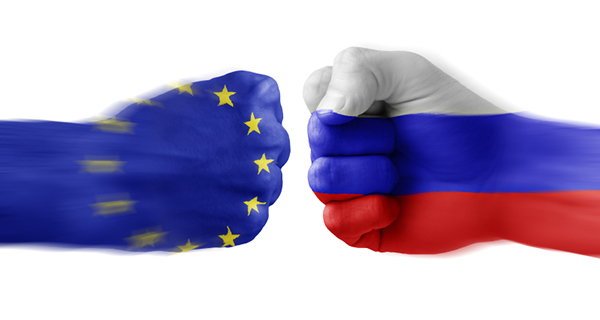
Russian President Vladimir Putin signed a decree extending the country’s veto on EU food imports for a further one and a half years. Even if Russia’s embargo of EU food products will be extended until the end of 2017, the list of banned foods or countries affected will not change, according to a draft government decree. The current list of products banned from Russia due to the veto include fruit, vegetables, meat, fish and dairy. But ” the government does not intend to widen the list of banned food imports, which currently affects fruit, vegetables, meat, poultry, fish, milk and dairy, nor increase the countries affected by the ban” as the agriculture minister Alexander Tkachev said.
EMBARGO IMPACT – According to EU data, exports to Russia fell by 43%, a loss of around 4,4 billion euros between August 2014 and June 2015 compared to the same period one year before, although these losses have been somewhat compensated the increasing exports to other countries, such as the USA, China, Hong Kong, South Korea and other Asian markets. In November last year, Euromonitor analysts found out that Italy, Spain, France and the UK were likely to lose less than 1 per cent in export revenue due to the continued ban with smaller countries being hit hardest. “Smaller countries such Estonia are expected to be the most impacted. The country is projected to register about 16% decrease in revenue from exports.” as we can red in Euromonitor report. Otherwise, in August last year Russia extended the ban to include Iceland, Liechtenstein, Albania and Montenegro. In the mean time, in 2013 Russia was the second most important agri-food export destination for European countries, representing around 11,6 billion euros.
UKRANIAN CRISIS – According to the official reports, the decision was made considering the fact that the 28 EU members were clear on their intention of continuing with the sanctions adopted after Russia’s role during the Ukranian crisis. Despite opposition from EU members such as Hungary, Italy and Greece, the EU will maintain its sanctions against Russia as they argue that Moscow hasn’t put effort on complying with the Minsk agreement created to solve the crisis in Ukraine. The veto has been in place since the summer of 2014 and it affects most western countries, not only members of the EU. Due to this situation, the European Commission have prolonged the supports and subsidies to EU producers that are facing problems due to the veto. These supports have been extended for one year, until end of June 2017. Expectations are growing that EU sanctions will be lifted in 2017. Some diplomats in Brussels speculate that Brexit could hasten their demise, as the UK has been one of the strongest voices for sanctions.
